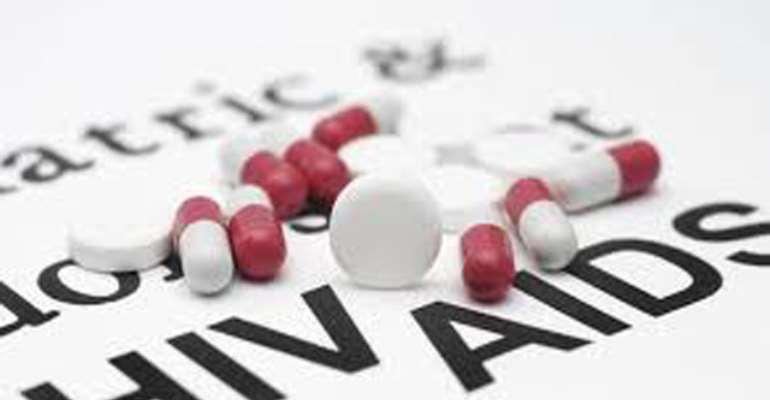Inadequate supply of HIV/AIDS drugs – Punch

Among other things, what the last protest by people living with HIV/AIDS has succeeded in achieving is that it has thrown new light on the shoddy manner the health authorities are responding to the epidemic in Nigeria. It is now clear that the country is not making serious progress in the very important task of effectively containing the spread of the disease, with the result that Nigeria has fallen behind in the race to meet the global target of ending the epidemic by 2030.
A recent report by UNAIDS, the Joint United Nations Programme on HIV/AIDS, grouped Nigeria with Indonesia, the Central African Republic, the Democratic Republic of the Congo, Russia and South Sudan as six countries globally that are 'being left behind' in the fight against HIV. It was not surprising, therefore, that after the protest of November 3, when members of the Network of People Living with HIV/AIDS barricaded the entrance to the National Agency for the Control of HIV/AIDS office in Abuja, it emerged that many members of the group had been denied access to life-saving retroviral drugs, necessary for the management of the disease. The spokesperson for the group, Sumaila Garba, complained that many of the members were dying due to their inability to access the relevant drugs.
Nigeria is credited with a population of 3.5 million people infected with HIV, the second largest in the world after South Africa, which has 5.6 million sufferers. But less than 650,000 people actually have access to anti-retroviral drugs in Nigeria. Access to treatment, according to UNAIDS, the main advocate for accelerated, comprehensive and coordinated global action on the HIV/AIDS epidemic, is not only central to keeping infected people alive and well but also to ending the epidemic, which afflicted 35 million people last year. A UNAIDS report says that 90 per cent of those who test positive for HIV in sub-Saharan Africa have access to retroviral drugs, resulting in achieving 76 per cent viral suppression.
Incidentally, viral suppression is critical to reducing the transmission of the virus between sexual partners, as research has confirmed that for every 10 per cent of increase in treatment coverage, there is a one per cent decline in the percentage of new infections. The UN Secretary-General, Ban Ki-moon, said in 2011 that 2.5 million deaths were estimated to have been averted since 1995 - and 350,000 new infections prevented in children - due to increase in access to anti-retroviral therapy.
This is why, in the containment efforts of HIV, treatment is vital. This is also the reason why the recent protest should draw attention to the plight of those infected with the virus in Nigeria. If the number of people accommodated in the treatment programme declines, the country risks recording an embarrassing increase in cases of new HIV infections, even as other parts of the world are witnessing a decline.
Also, reports from experts who attended the last American Conference on the Treatment of HIV/AIDS in Denver, Colorado in the United States, in June indicated that the number of people living with the disease in Nigeria increased by 500,000 in the previous three years. Within that same period, about 217,148 people reportedly died from HIV/AIDS-related complications. A disturbing United Nations report last year said, 'Nigeria had the largest number of children acquiring HIV infection, nearly 60,000 in 2012 - a number that remained unchanged since 2009.'
Protesting to get government attention is fast becoming second nature to those living with HIV/AIDS in Nigeria. The last time they staged a similar protest was during a conference in South Africa, where they claimed they were losing their members because a certain Tyonex antiretroviral drug, which did not meet the World Health Organisation's approval standards, was being administered on their members. The protest was reportedly taken to South Africa to gain global attention after efforts to have audience with health authorities in Nigeria were rebuffed.
From the response of the Director-General of NACA, John Idoko, it is obvious that poor funding is at the root of the problem in Nigeria. Out of the estimated N140 billion projected funding for treatment under the Presidential Comprehensive Response Plan for HIV/AIDS, the Federal Government was said to have appropriated only N8 billion, leaving a deficit of N132 billion. Reports further claim that only 20 per cent of that N8 billion has been released. This shows a lack of seriousness by the government, whose apathy is worsened by the gradual withdrawal of funding by international donor countries and organisations.
The Federal Government should review its HIV/AIDS programme. The PCRP, launched with fanfare last year, was to 'accelerate the implementation of key interventions over (a) two-year period to bridge existing service access gaps.' According to the PCRP document, the plan was to avail 80 million men and women, aged 15 and older, knowledge of their HIV status, and increase the number of those eligible for anti-retroviral treatment, among other measures. These, sadly, are not happening.
It is said that an AIDS-free generation is within our reach. The Jonathan administration should do more to make it a reality. It must start acting more responsibly by creating better access to multiple antiretroviral drugs. That remains the only way out, until a cure is eventually found.
